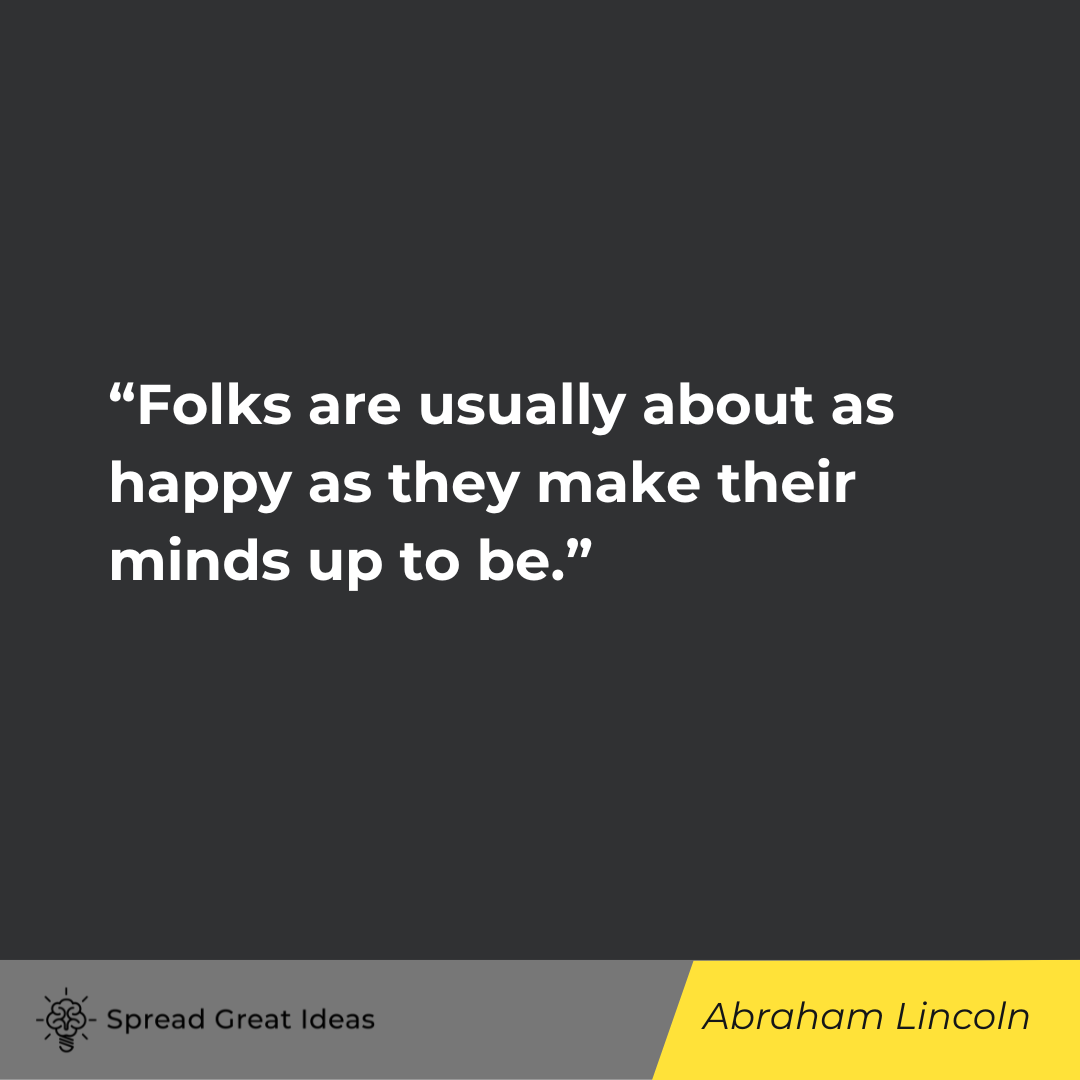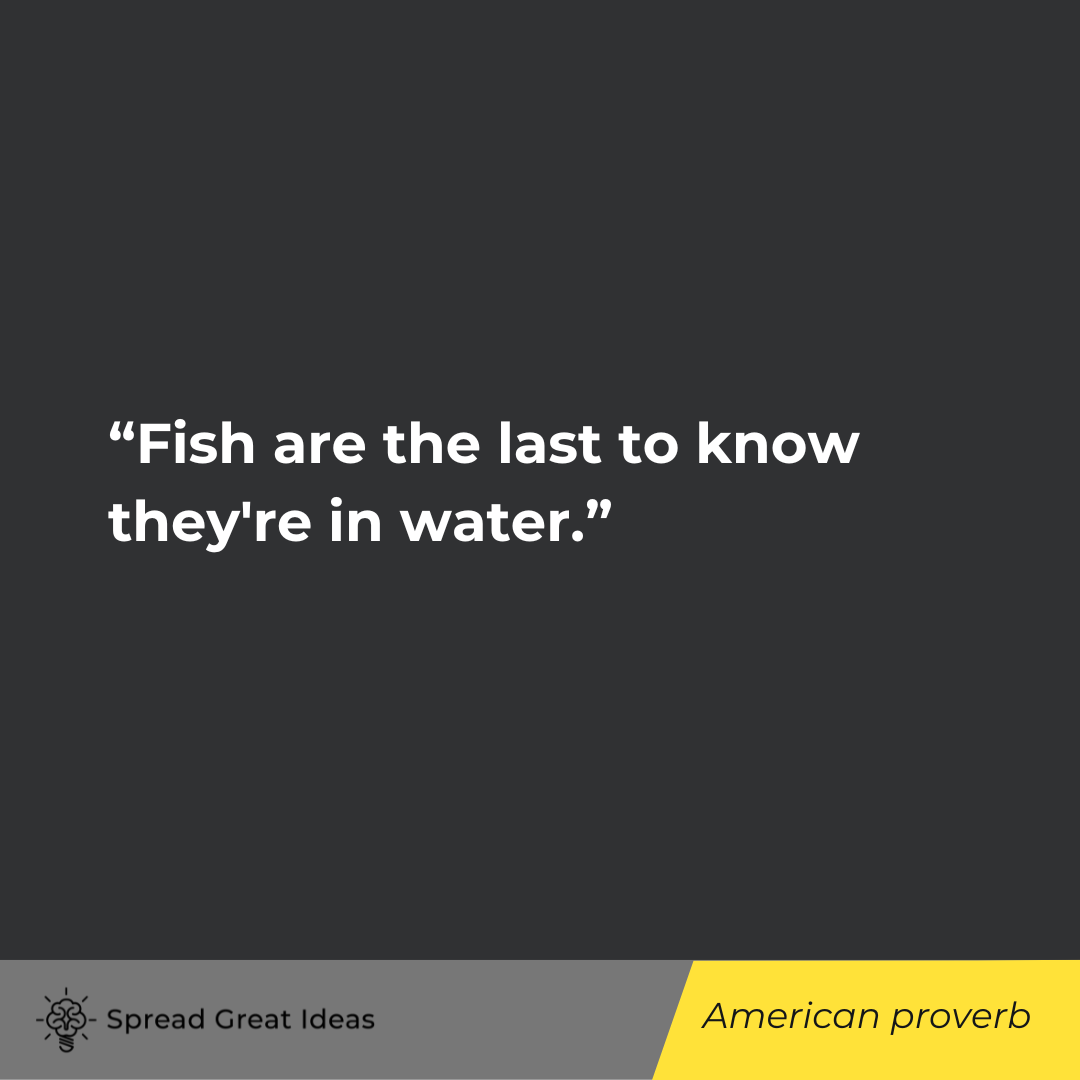Table of Contents
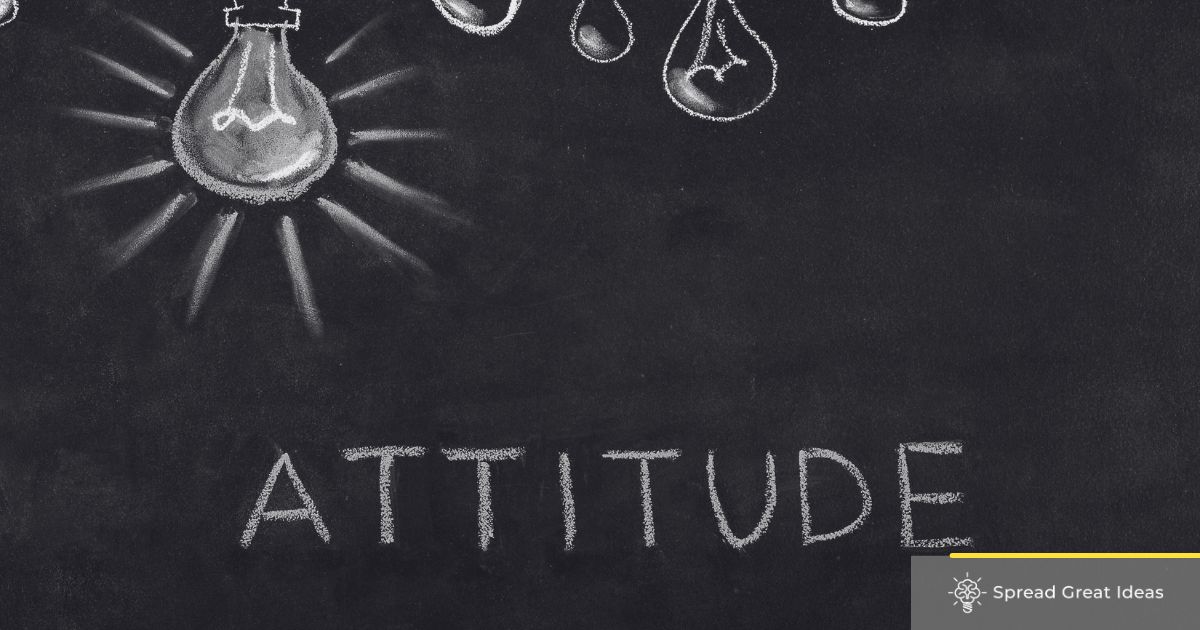
The right mindset is an indispensable tool in the quest for self-actualization. There are three pillars of the right mindset: a positive attitude, presence in the moment, and gratitude for what one has.
Positivity is not a question of being Pollyanna-ish, but of seeing the positive potential in any situation. The most successful people are differentiated from the rest of the pack by their ability to see opportunity in just about any failure. A setback for them, is not a setback, but a new set of opportunities. Even in the worst situation we have control over how we react. This, not blinding out the reality of adversity, is what is meant by positive thinking.
Presence is a powerful tool not only to transform the self but to best one’s adversaries. It was the position of Greco-Armenian mystic, G.I. Gurdjieff, that the majority of people were sleeping the majority of the time. How true and how sad. The present moment is the only moment that we have. How often are you living in either regret for the past or worry for the future rather than in the present moment?
Finally, gratitude is about remembering what we have. What, after all, is all the good work we do if we can’t reflect on what we have?
Here are some quotes that will help you to practice these three pillars every day.
Quotes About Living in the Present
Amit Ray
“If you want to conquer the anxiety of life, live in the moment, live in the breath.”
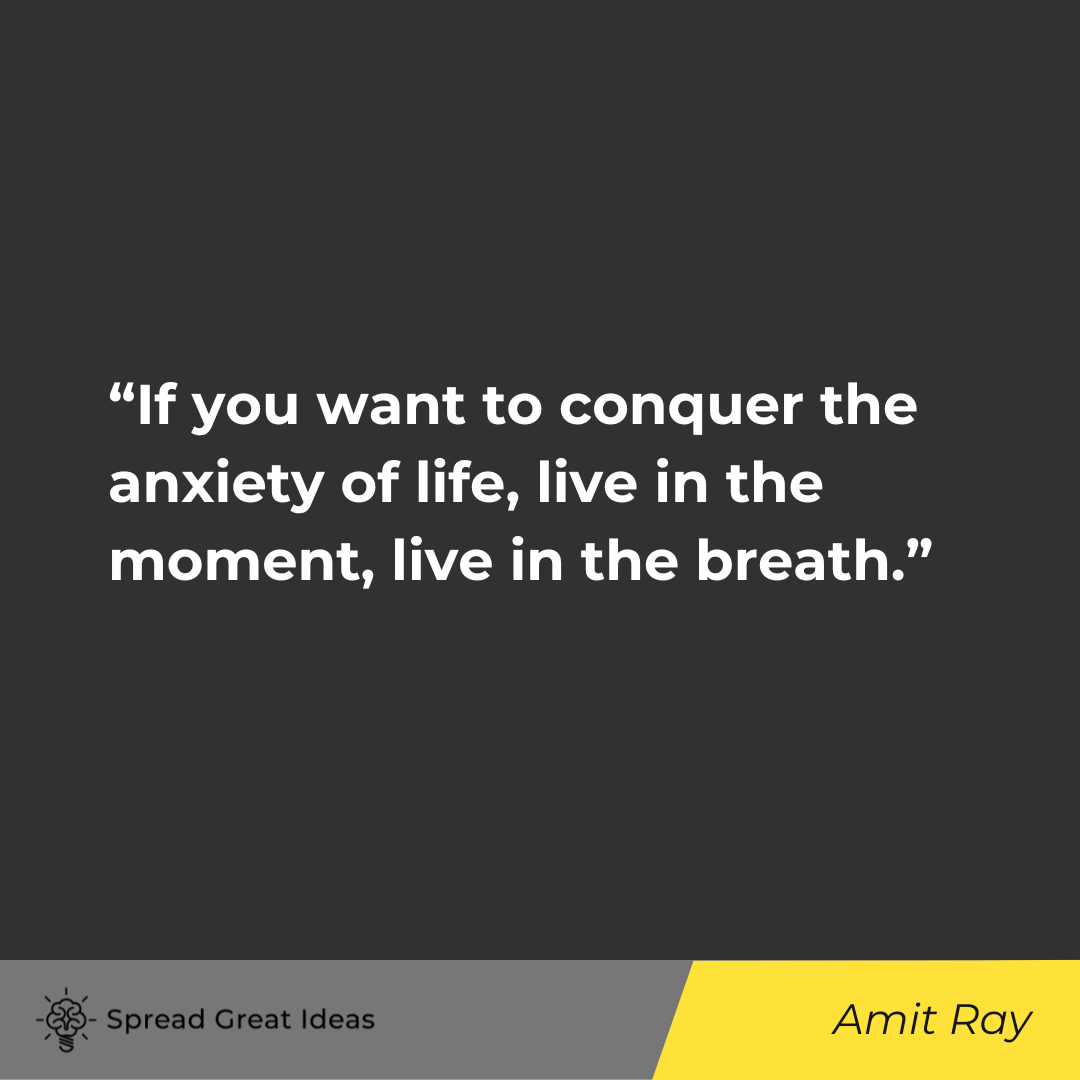
Carl Von Clausewitz
“There are very few men – and they are the exceptions – who are able to think and feel beyond the present moment.”
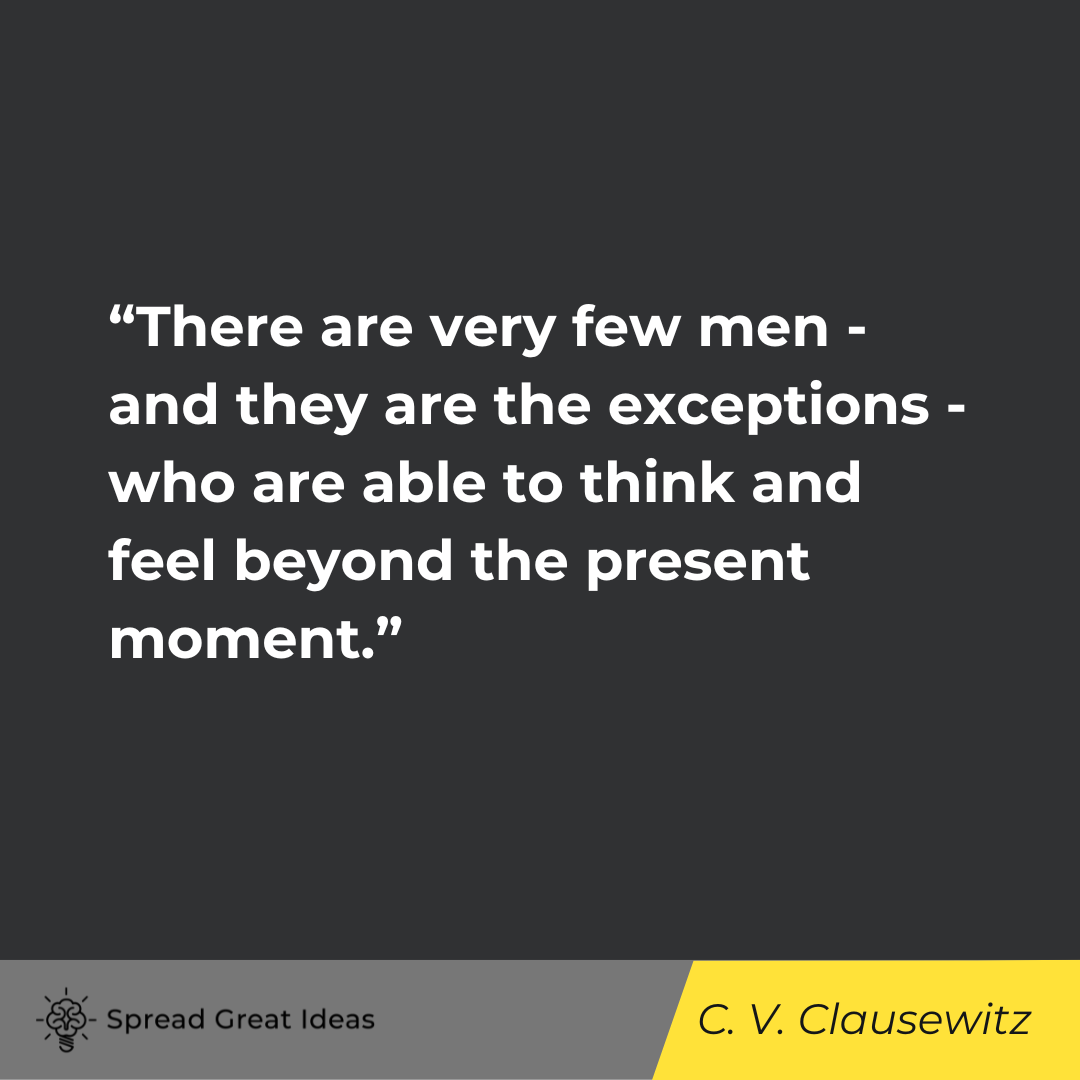
Unknown
“You’re The Author. Forget The Past. Write whatever you want in life and it will be the truth.”
– Unknown

American proverb
“Fish are the last to know they’re in water.”
– American proverb
G.I. Gurdjieff
“Awakening is possible only for those who seek it and want it, for those who are ready to struggle with themselves and work on themselves for a very long time and very persistently in order to attain it.”
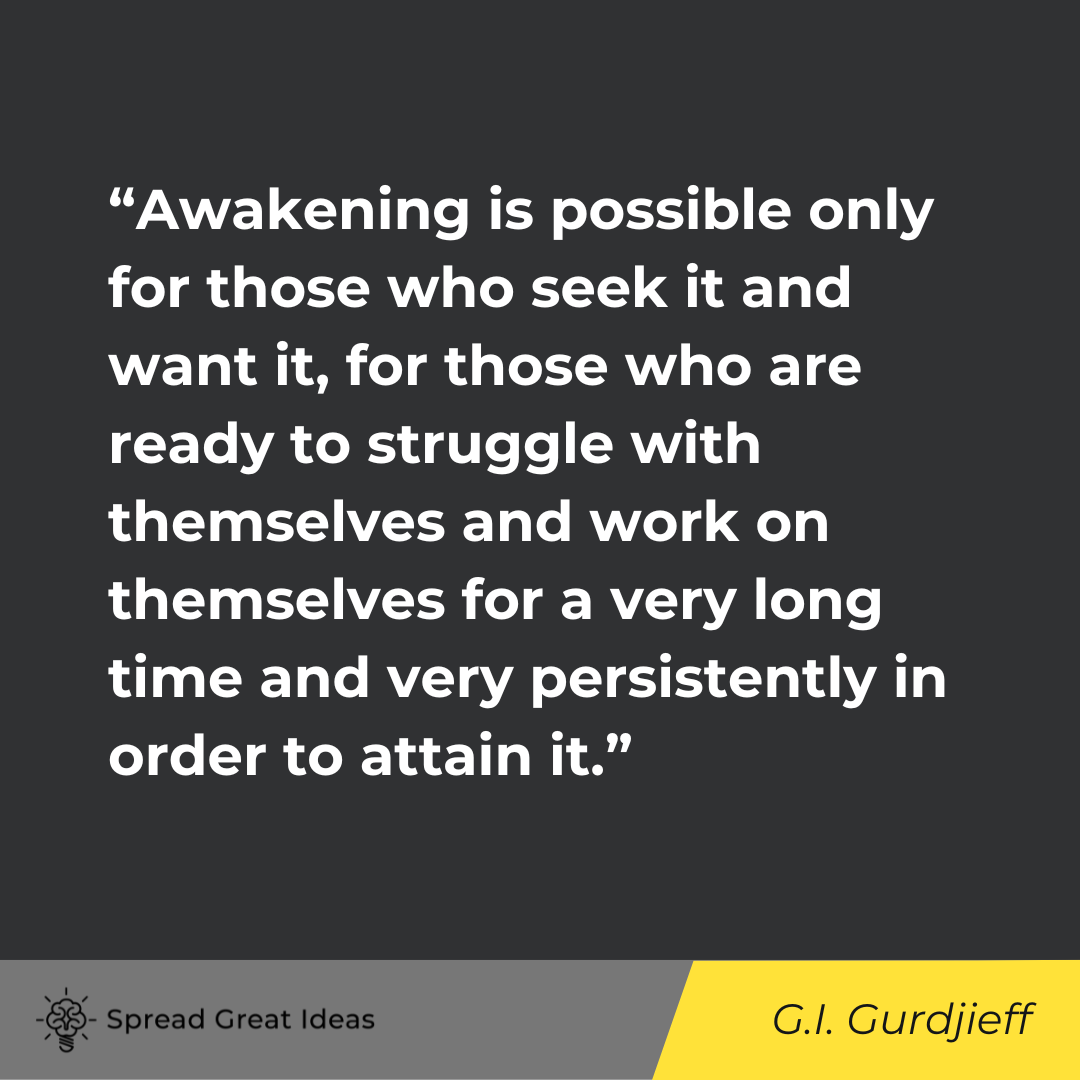
Colin Powell
“Always focus on the front windshield and not the review mirror.”
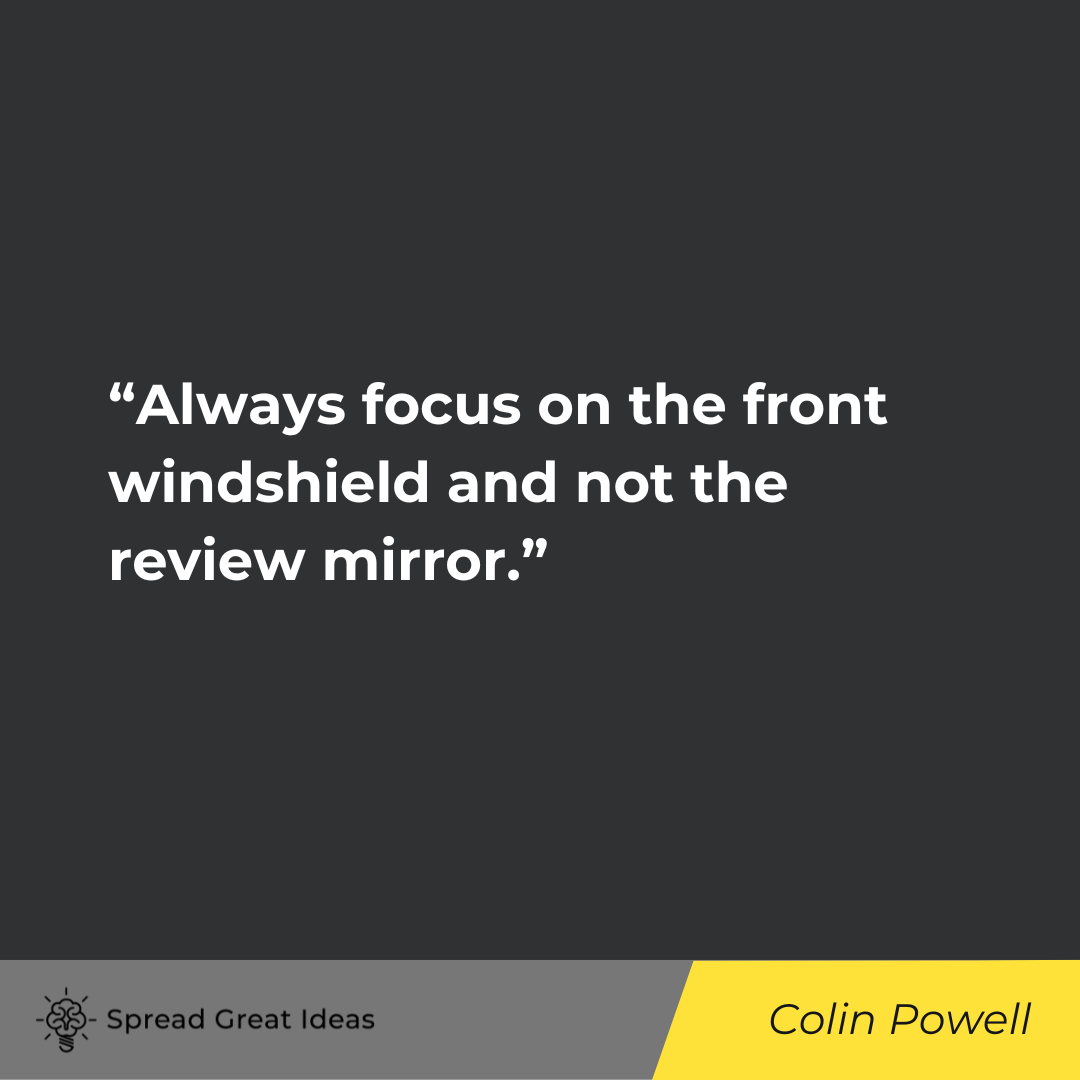
Unknown
“It isn’t the burdens of today that drive us mad. It is the regrets over yesterday and the fear of tomorrow. Regret and fear are twin thieves who rob us of today.”
– Unknown
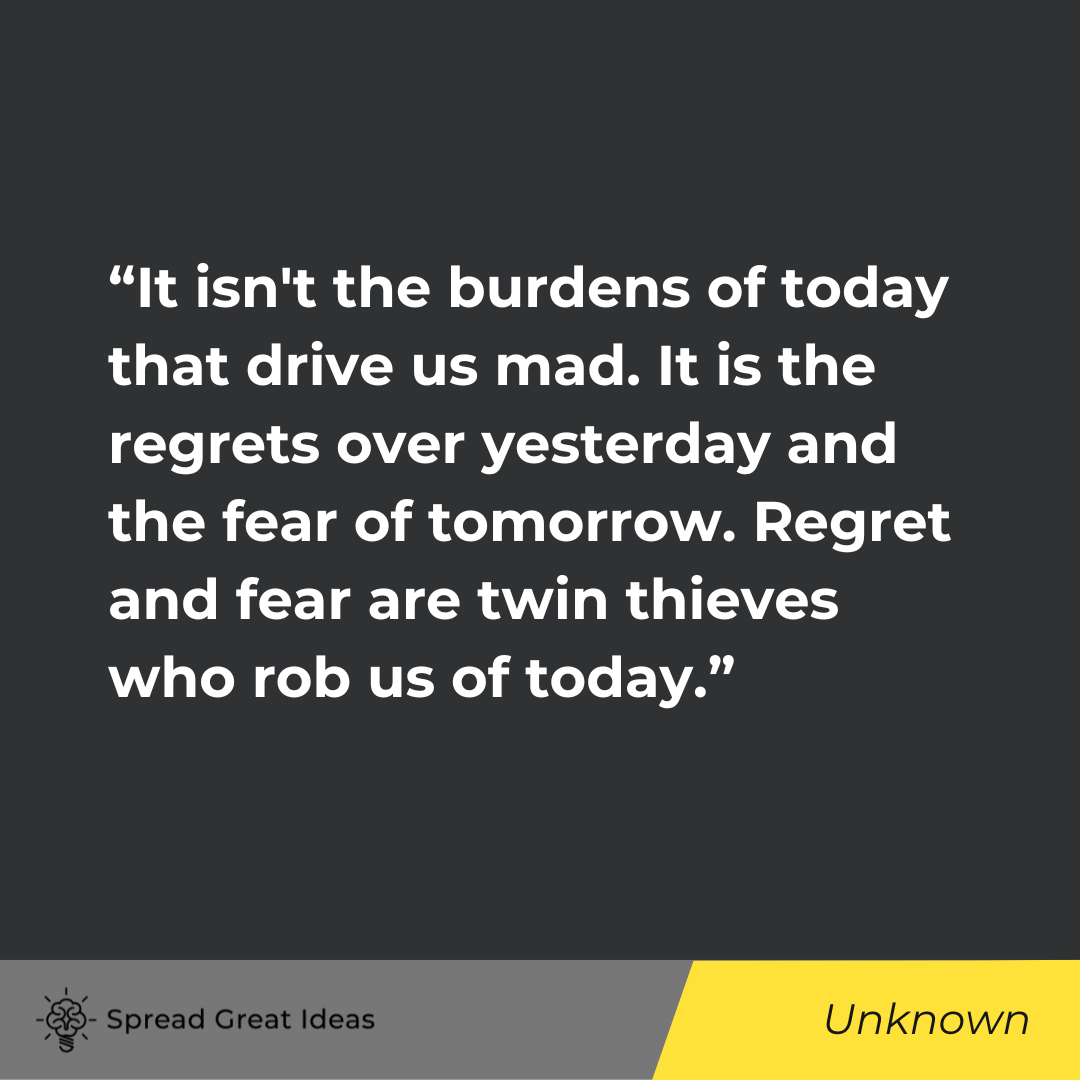
George Harrison
“It’s being here now that’s important. There’s no past and there’s no future. Time is a very misleading thing. All there is ever, is the now. We can gain experience from the past, but we can’t relive it; and we can hope for the future, but we don’t know if there is one.”
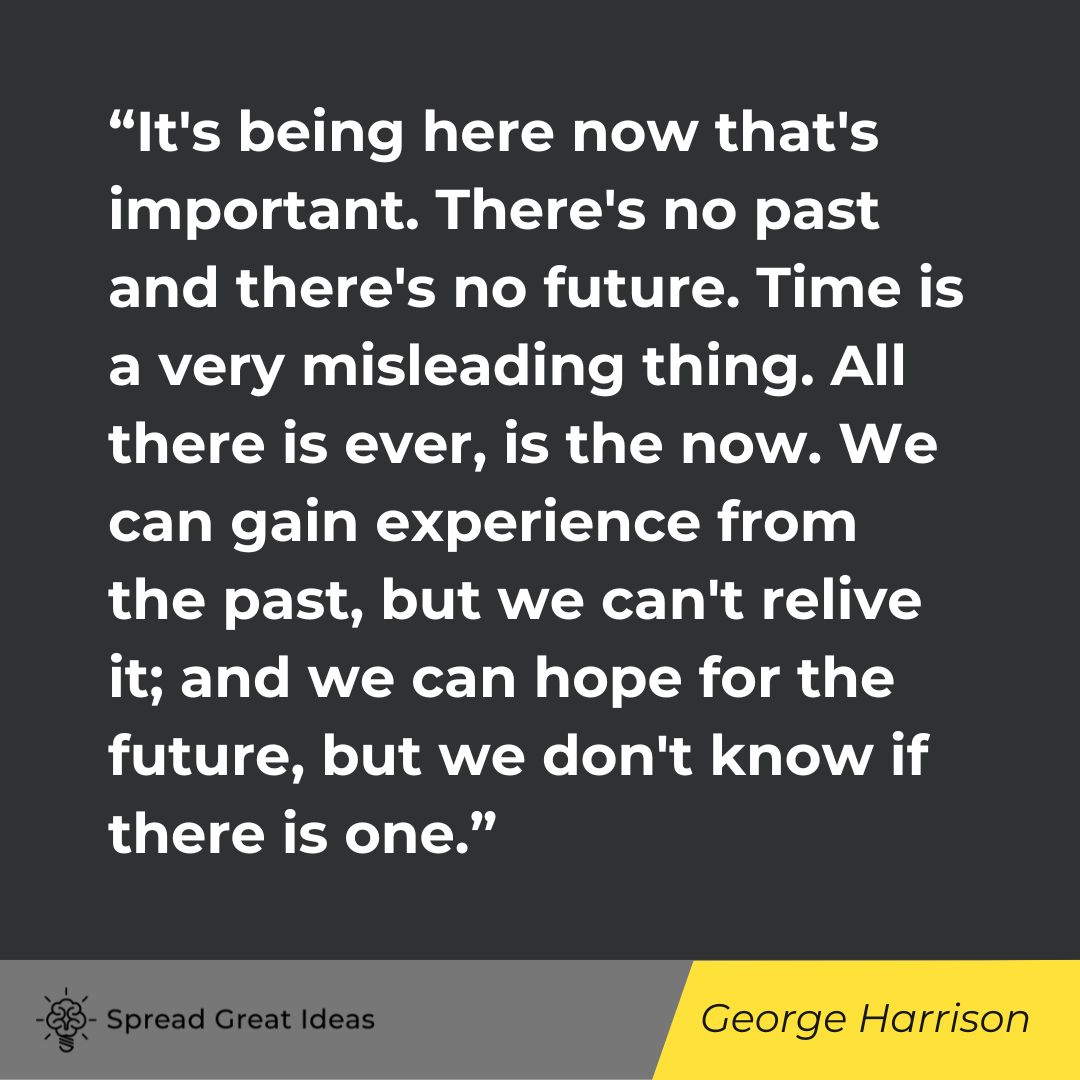
Dalai Lama
“There are only two days in the year that nothing can be done. One is called Yesterday and the other is called Tomorrow.”
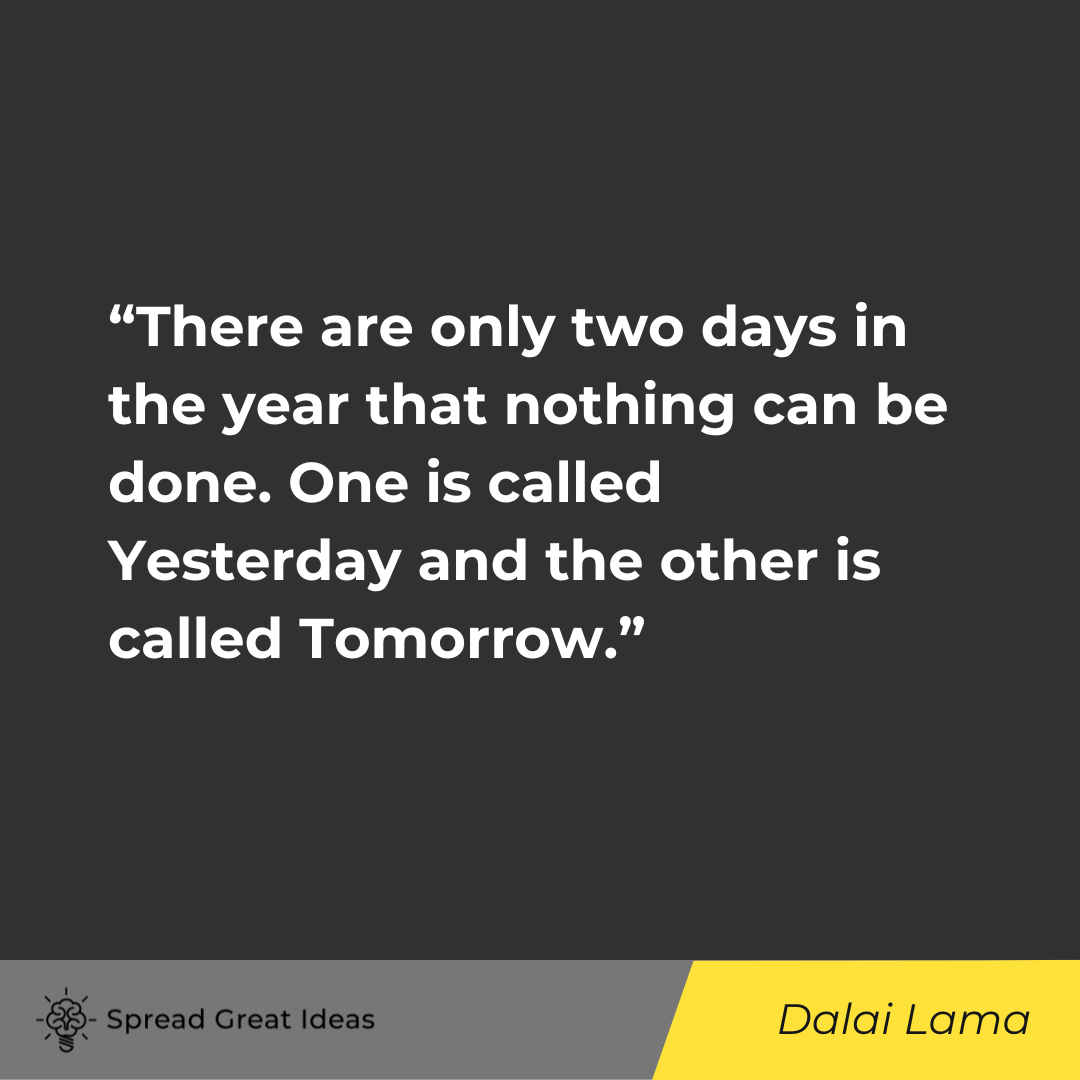
G. K. Chesterton
“We are perishing for want of wonder, not for want of wonders.”
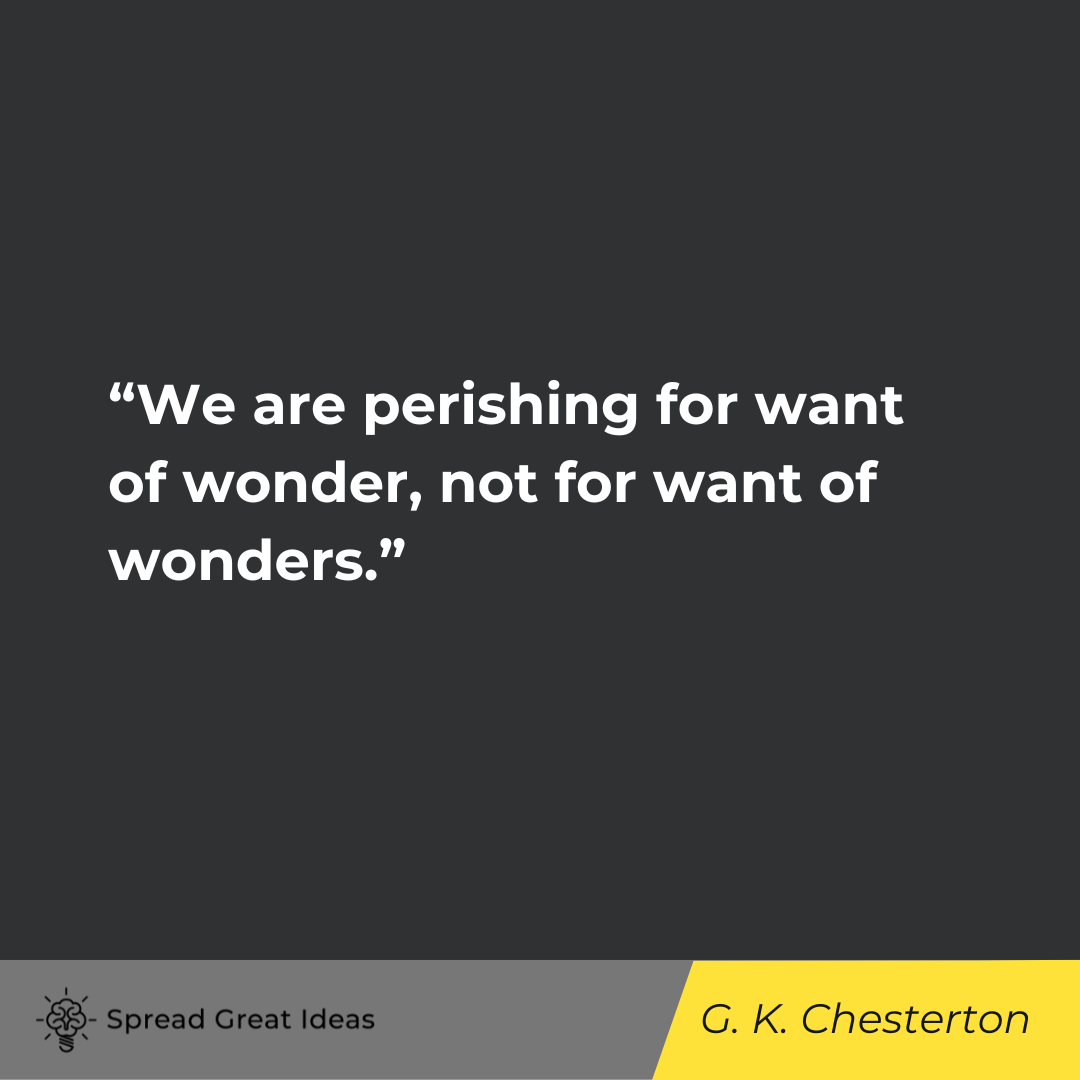
Seneca
“True happiness is to enjoy the present, without anxious dependence upon the future, not to amuse ourselves with either hopes or fears but to rest satisfied with what we have, which is sufficient, for he that is so wants nothing. The greatest blessings of mankind are within us and within our reach. A wise man is content with his lot, whatever it may be, without wishing for what he has not.”
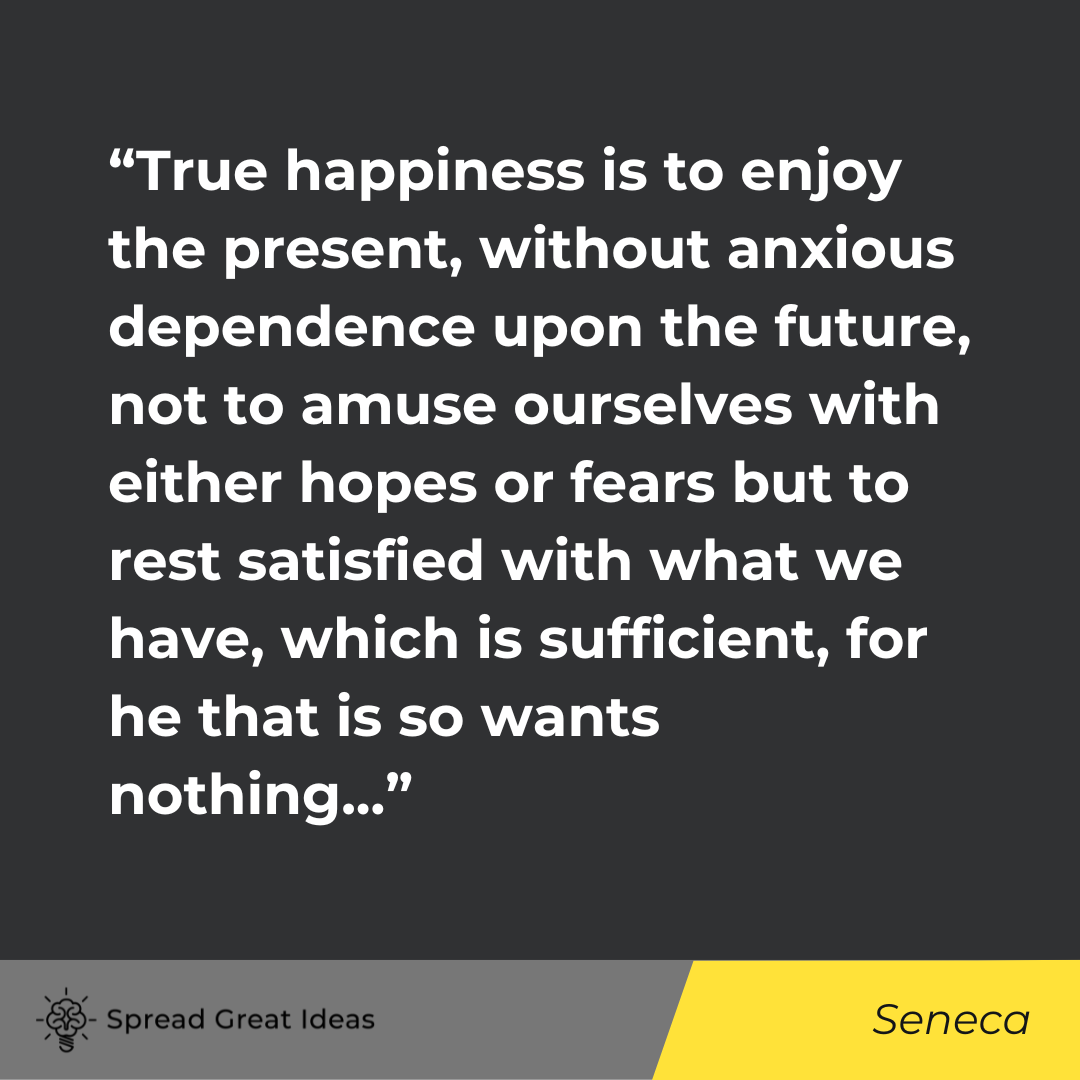
Leo Tolstoy
“If a man decides that it is better for him to resist the demands of a present feeble love, in the name of another, of a future manifestation, he deceives either himself or other people, and loves no one but himself. Future love does not exist. Love is a present activity only. The man who does not manifest love in the present has not love.”
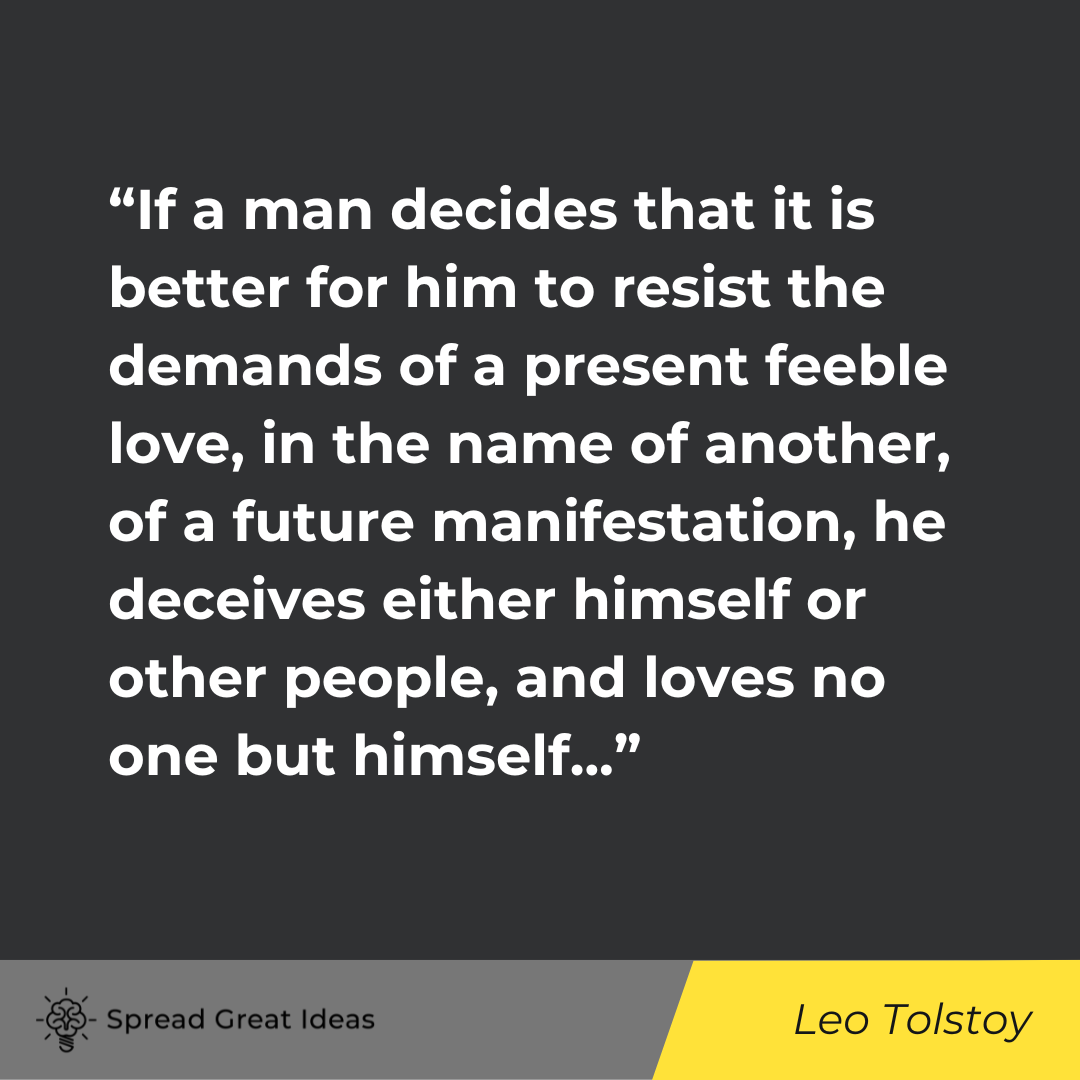
Henry David Thoreau
“You must live in the present, launch yourself on every wave, find your eternity in each moment. Fools stand on their island of opportunities and look toward another land. There is no other land; there is no other life but this.”
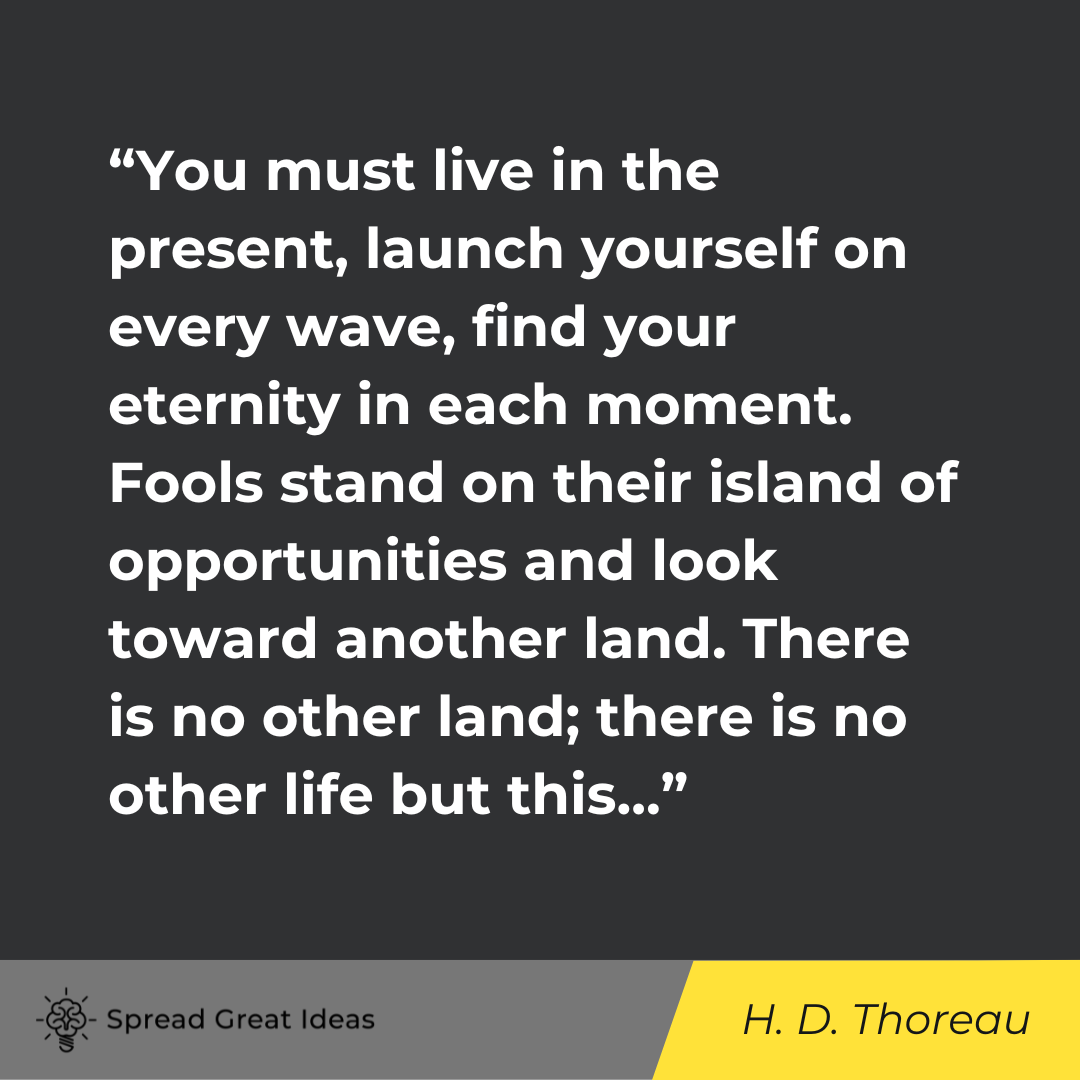
Karl Lagerfeld
“People who say that yesterday was better than today are ultimately devaluing their own existence.”
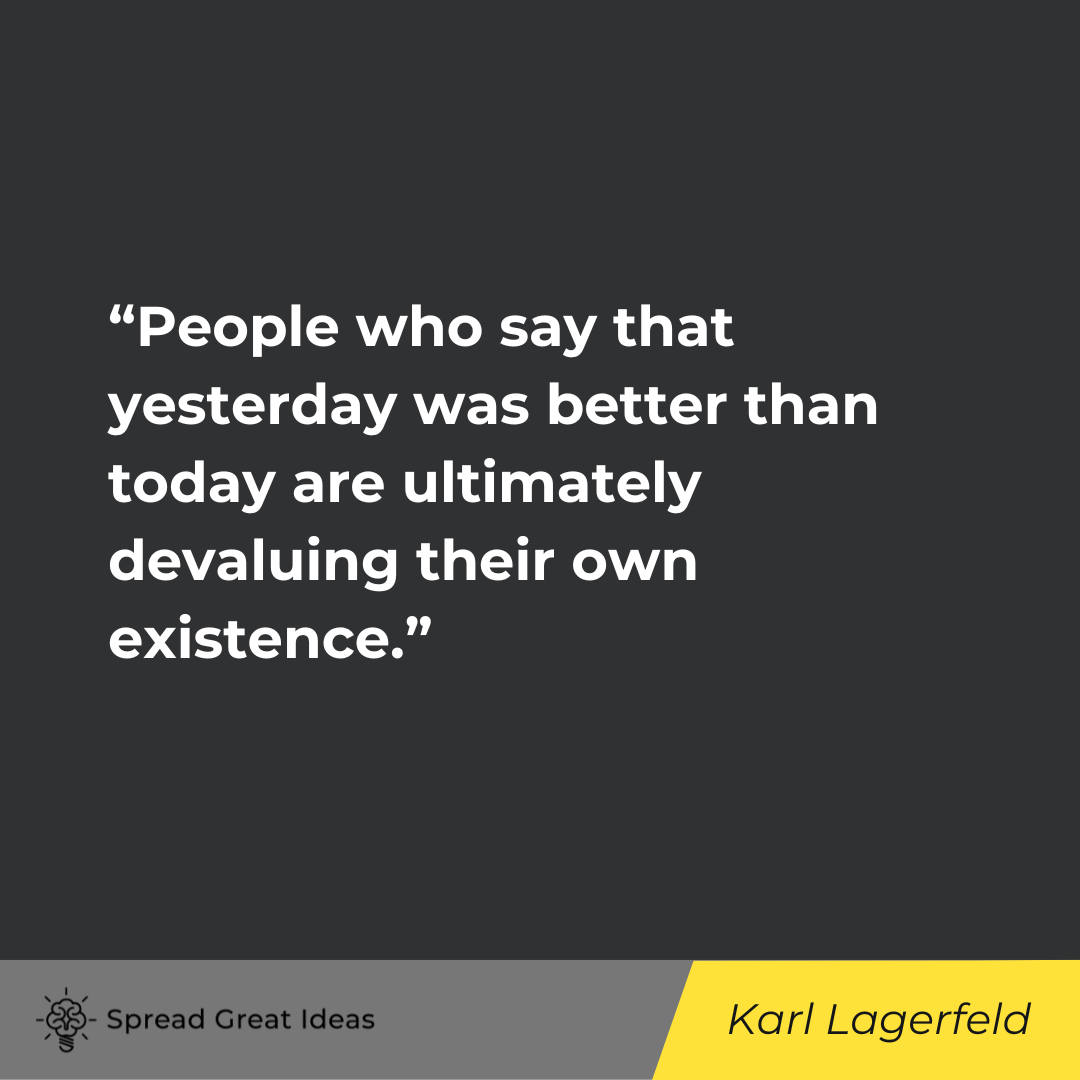
Albert Camus
“Real generosity towards the future lies in giving all to the present.”
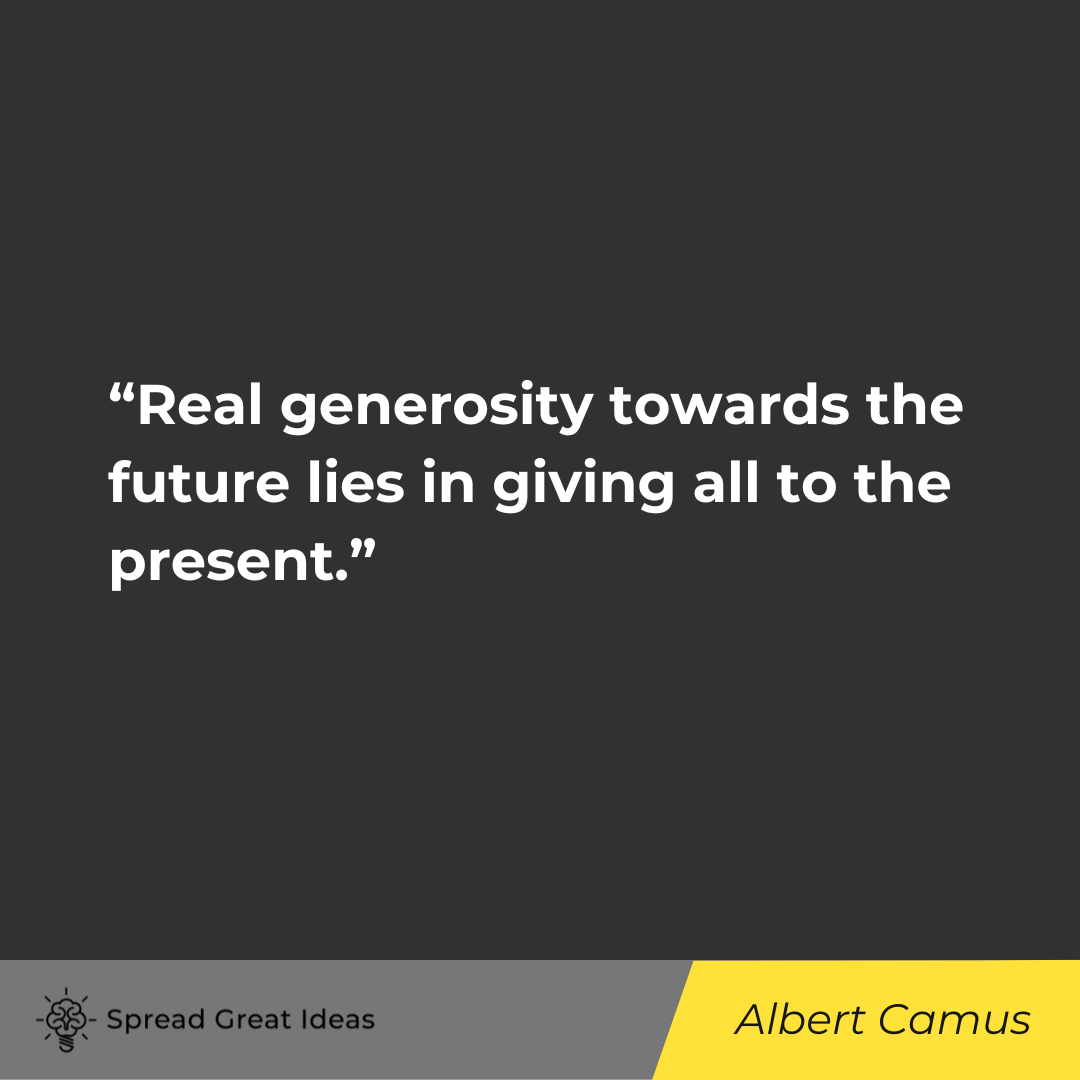
Abraham Lincoln
“Folks are usually about as happy as they make their minds up to be.”
